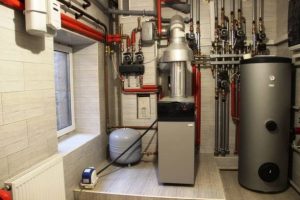Hot water systems need sufficient space to accommodate the heat load they generate. You must install a good auxiliary circulation pump to ensure proper system performance. The pump doesn’t have to be large; it just needs to be capable of moving 0.2 to 0.5 times the system capacity per hour. For example, a 2,000-gallon system needs a pump capable of moving 400 to 1,000 gallons per hour. Normally, a half or one-half-horsepower electric pump is sufficient.
 The efficiency of hot water systems Adelaide is determined partly by the heat they generate. Modern hot water systems use less power than older storage models. Hence, they have lower operating costs. Some hot water systems can be used even when the users are not at home. By adjusting the thermostat to a more suitable level, you can set the time when the water is required. However, you must ensure that the system is insulated properly.
The efficiency of hot water systems Adelaide is determined partly by the heat they generate. Modern hot water systems use less power than older storage models. Hence, they have lower operating costs. Some hot water systems can be used even when the users are not at home. By adjusting the thermostat to a more suitable level, you can set the time when the water is required. However, you must ensure that the system is insulated properly.
Laser Plumbing offers cost-efficient instant hot water systems. Their cost-effective designs have been successfully incorporated into several projects all around the world. The building includes luxury penthouses, a rooftop retreat, a gym and entertaining communal spaces. In addition to offering a high-quality finish, the systems were installed six weeks early.
A poorly designed combustion chamber or firebox can result in performance problems with hot water systems. Unfortunately, it’s also not easy to repair. If you’re worried about corrosion and want to extend the life of your hot-water system, consider a solar hot water system. It will eliminate the need for expensive water heaters and reduce the risk of corrosion in your local pipelines. The water temperature inside a hot water system should not be too hot for your faucet.
Most hot-water systems have a central boiler that heats water to 140 degrees Fahrenheit or 60 degrees Celsius. These pipes then circulate the hot water to various coil units, such as radiators or heating pads. The hot water can be circulated using gravity or pressure. Forced circulation with a pump is more efficient. Emitters give off heat either by radiation or convection and then return to the boiler. The system is generally connected in parallel with the main distribution lines.
The population is increasingly urban and expects compact living spaces. The pressure on architects to provide more space with less is growing, and they must stay on top of the latest trends and technologies. In the case of multi-residential developments, speccing the appropriate hot water system is essential. Not only can it help unlock additional space, but it can also reduce energy usage and costs for residents.
Tankless water heaters are another alternative. Tankless systems do not store and heat water on demand, making them less costly to maintain and use. Tankless models are more efficient than conventional storage water heaters and last infinitely when switched on. Demand-type hot water systems are also smaller and can be installed almost anywhere. The tankless and demand-type water heaters can also be installed in your garage or basement. This makes them a great option if you need hot water right away.
The most common geothermal system is a hot water system. Both liquid and steam phases are produced at the wellhead. Single and dual-pressure systems use low-pressure flashers. Low-pressure flashers, also called separators, are used to generate more steam. The flashers act as pressure vessels that separate the steam from the liquid phase. Ultimately, this hot water system is the most efficient alternative for geothermal heating.
Solar hot water systems are an excellent alternative to traditional water heaters. They can significantly reduce your household energy usage and your power bills. You can save up to 90% on your water bill by installing a solar hot water system. But solar hot water systems can be expensive and unreliable. Some models require boosters if there is not enough sunlight. These hot water systems can cost from two to eight thousand dollars. The payback period depends on your location and the technology used for water heating.
Home-built hot water systems may contain problems related to the combustion chamber. The combustion chamber is too small and is prone to smoke. Firebrick lining may also make the fire burn hotter. A larger combustion chamber can address these problems. If you’re unsure whether the system is safe, consult a plumbing specialist to determine your options. There are many options available to ensure the safety of your hot water system. Don’t forget to read all of the safety precautions carefully.